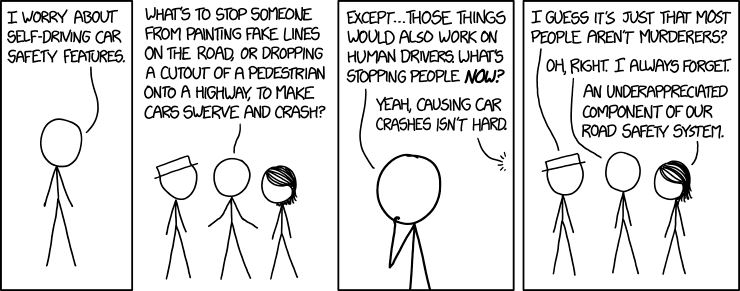Matthew H Fish
Lead Service Attendant
- Joined
- May 28, 2019
- Messages
- 499
https://www.nytimes.com/2023/10/23/us/alaska-airlines-flight-diverted.htmlThis article is surprising and a little confusing to follow, but apparently, an off-duty airline pilot who was ferrying inside the cockpit of a flight tried to shut off the engines but was restrained from doing so, and then the flight landed at PDX and the off-duty pilot was arrested.
From reading the article, there are several things that are unclear to me, including the motivation.
But also, obviously, while this type of thing doesn't happen often, it poses a much larger threat in an airplane than in a train. Cutting the engines of an airplane is obviously fatal...cutting the engines of a train means spending an extra half hour in Chehalis!
It will be interesting to see how this story develops.
From reading the article, there are several things that are unclear to me, including the motivation.
But also, obviously, while this type of thing doesn't happen often, it poses a much larger threat in an airplane than in a train. Cutting the engines of an airplane is obviously fatal...cutting the engines of a train means spending an extra half hour in Chehalis!
It will be interesting to see how this story develops.





